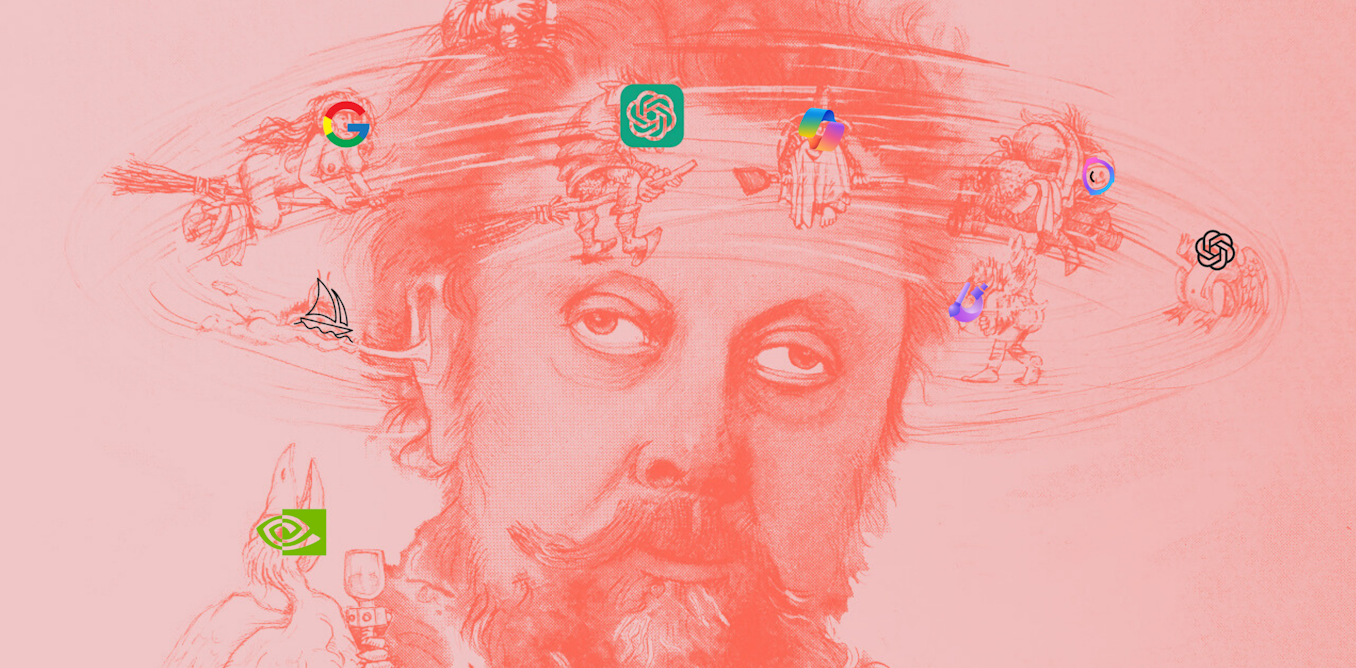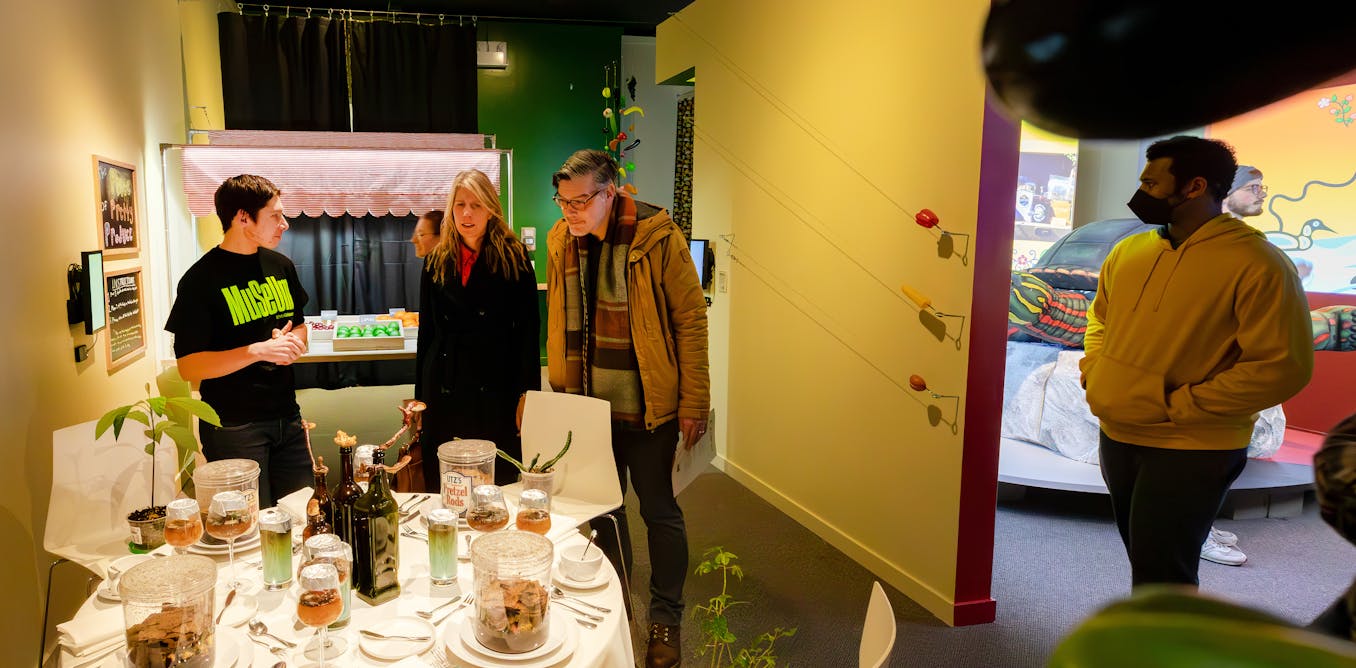There is only so much thinking most of us can do in our heads. Try dividing 16,951 by 67 without reaching for a pen and paper. Or a calculator. Try doing the weekly shopping without a list on the back of last week’s receipt. Or on your phone.
By relying on these devices to help make our lives easier, are we making ourselves smarter or dumber? Have we traded efficiency gains for inching ever closer to idiocy as a species?
This question is especially important to consider with regard to generative artificial intelligence (AI) technology such as ChatGPT, an AI chatbot owned by tech company OpenAI, which at the time of writing is used by 300 million people each week.
According to a recent paper by a team of researchers from Microsoft and Carnegie Mellon University in the United States, the answer might be yes. But there’s more to the story.
Thinking well
The researchers assessed how users perceive the effect of generative AI on their own critical thinking.
Generally speaking, critical thinking has to do with thinking well.
One way we do this is by judging our own thinking processes against established norms and methods of good reasoning. These norms include values such as precision, clarity, accuracy, breadth, depth, relevance, significance and cogency of arguments.
Other factors that can affect quality of thinking include the influence of our existing world views, cognitive biases, and reliance on incomplete or inaccurate mental models.
The authors of the recent study adopt a definition of critical thinking developed by American educational psychologist Benjamin Bloom and colleagues in 1956. It’s not really a definition at all. Rather it’s a hierarchical way to categorise cognitive skills, including recall of information, comprehension, application, analysis, synthesis and evaluation.
The authors state they prefer this categorisation, also known as a “taxonomy”, because it’s simple and easy to apply. However, since it was devised it has fallen out of favour and has been discredited by Robert Marzano and indeed by Bloom himself.
In particular, it assumes there is a hierarchy of cognitive skills in which so-called “higher-order” skills are built upon “lower-order” skills. This does not hold on logical or evidence-based grounds. For example, evaluation, usually seen as a culminating or higher-order process, can be the beginning of inquiry or very easy to perform in some contexts. It is more the context than the cognition that determines the sophistication of thinking.
An issue with using this taxonomy in the study is that many generative AI products also seem to use it to guide their own output. So you could interpret this study as testing whether generative AI, by the way it’s designed, is effective at framing how users think about critical thinking.
Also missing from Bloom’s taxonomy is a fundamental aspect of critical thinking: the fact that the critical thinker not only performs these and many other cognitive skills, but performs them well. They do this because they have an overarching concern for the truth, which is something AI systems do not have.
Alex Photo Stock/Shutterstock
Higher confidence in AI equals less critical thinking
Research published earlier this year revealed “a significant negative correlation between frequent AI tool usage and critical thinking abilities”.
The new study further explores this idea. It surveyed 319 knowledge workers such as healthcare practitioners, educators and engineers who discussed 936 tasks they conducted with the help of generative AI. Interestingly, the study found users consider themselves to use critical thinking less in the execution of the task, than in providing oversight at the verification and editing stages.
In high-stakes work environments, the desire to produce high-quality work combined with fear of reprisals serve as powerful motivators for users to engage their critical thinking in reviewing the outputs of AI.
But overall, participants believe the increases in efficiency more than compensate for the effort expended in providing such oversight.
The study found people who had higher confidence in AI generally displayed less critical thinking, while people with higher confidence in themselves tended to display more critical thinking.
This suggests generative AI does not harm one’s critical thinking – provided one has it to begin with.
Problematically, the study relied too much on self-reporting, which can be subject to a range of biases and interpretation issues. Putting this aside, critical thinking was defined by users as “setting clear goals, refining prompts, and assessing generated content to meet specific criteria and standards”.
“Criteria and standards” here refer more to the purposes of the task than to the purposes of critical thinking. For example, an output meets the criteria if it “complies with their queries”, and the standards if the “generated artefact is functional” for the workplace.
This raises the question of whether the study was really measuring critical thinking at all.

ImYanis/Shutterstock
Becoming a critical thinker
Implicit in the new study is the idea that exercising critical thinking at the oversight stage is at least better than an unreflective over-reliance on generative AI.
The authors recommend generative AI developers add features to trigger users’ critical oversight. But is this enough?
Critical thinking is needed at every stage before and while using AI – when formulating questions and hypotheses to be tested, and when interrogating outputs for bias and accuracy.
The only way to ensure generative AI does not harm your critical thinking is to become a critical thinker before you use it.
Becoming a critical thinker requires identifying and challenging unstated assumptions behind claims and evaluating diverse perspectives. It also requires practising systematic and methodical reasoning and reasoning collaboratively to test your ideas and thinking with others.
Chalk and chalkboards made us better at mathematics. Can generative AI make us better at critical thinking? Maybe – if we are careful, we might be able to use generative AI to challenge ourselves and augment our critical thinking.
But in the meantime, there are always steps we can, and should, take to improve our critical thinking instead of letting an AI do the thinking for us.

The post “Is AI making us stupider? Maybe, according to one of the world’s biggest AI companies” by Deborah Brown, Professor in Philosophy, Director of the University of Queensland Critical Thinking Project, The University of Queensland was published on 02/13/2025 by theconversation.com



































Leave a Reply